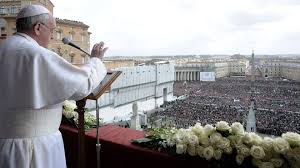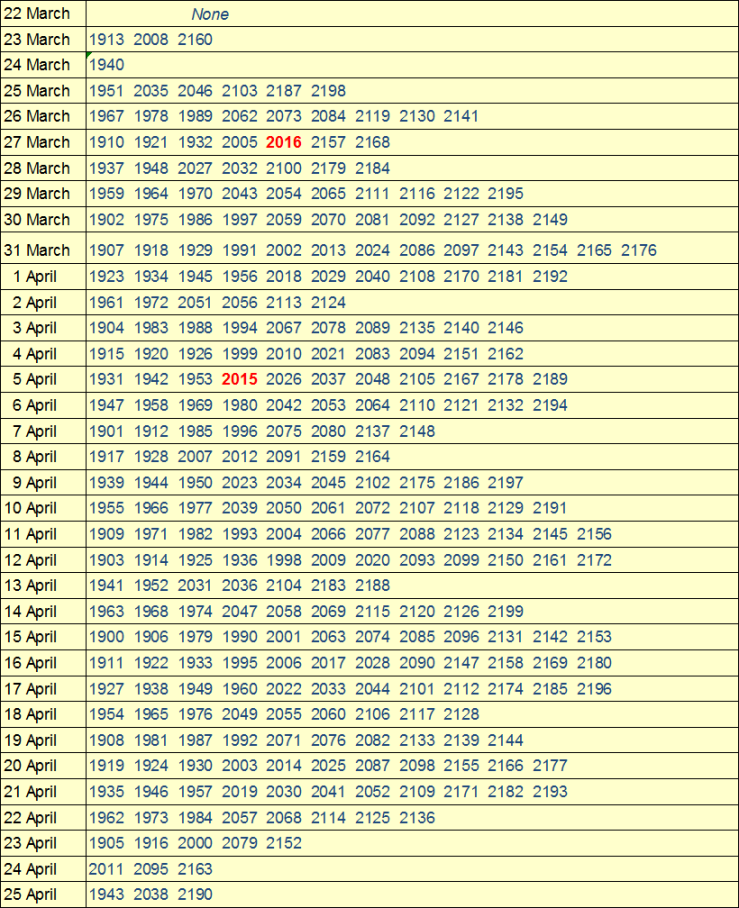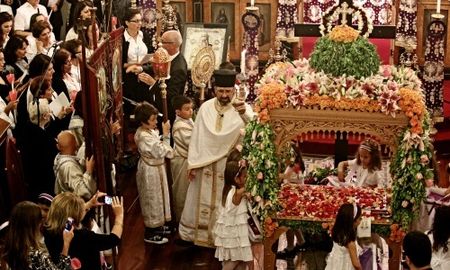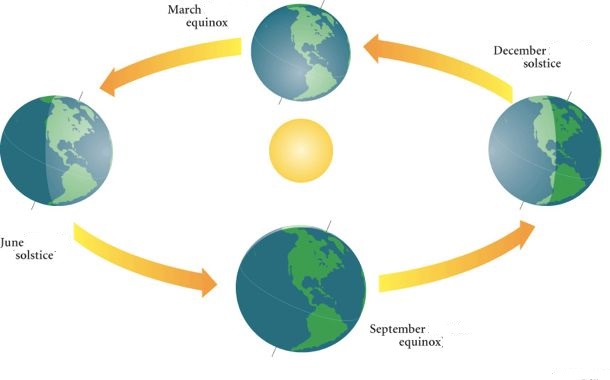This year, for the majority of Christians, Sunday 5 April will be Easter Sunday, which is one of the most of the most important dates in the Christian calendar.
The Pope giving his traditional Easter message.
In addition Easter is also widely marked by non Christians. In many countries chocolate Easter Eggs and Easter Bunnies are bought by much of the population regardless of their religious beliefs.
In many countries the Friday before Easter, Good Friday, and the Monday after, Easter Monday, are public holidays.
Easter Sunday is a movable feast, so the day on which it occurs varies from year to year. The period of time starting on the Wednesday 46 days before Easter up to Easter Sunday itself is known as Lent. There are two dates which are often celebrated in the UK tied into Lent and thus the dates on which they fall depend upon the date of Easter:
- Shrove Tuesday, better known as Pancake Day is on the day before Lent and is thus always 47 days before Easter. In some other countries this day is known as Mardi Gras.
- Mothering Sunday is the fourth Sunday in Lent and is thus always three weeks before Easter Sunday.

Pancakes eaten with lemon and sugar on Shrove Tuesday.
How is the date of Easter calculated?
Early Christian decision makers in the fourth century established that Easter would be held on the first Sunday after the first full moon occurring on or after the (Northern Hemisphere) spring equinox (which is assumed to always take place on March 21) and this definition still holds true today.
There are two interesting features to this definition. The first one is that that the exact date of the spring equinox isn’t always March 21. It varies from from year to year and also from place to place on the Earth. For example the dates and times of the spring and autumn (or fall) equinoxes for 2015 and 2016 are given, in Greenwich Mean Time, in the table below (Ref 1).
However, at different longitudes, and thus different time zones, these events will occur at different times. For example, in New Zealand which is 13 hours ahead of GMT, the spring equinox will occur at 11:45 on March 21 2015, whereas in Honolulu, Hawaii, which is 10 hours behind GMT the Spring Equinox will occur at 12:45 on March 20 2015. Another point is that although the equinoxes are often thought of as the dates when the length of day and night are both exactly 12 hours, strictly speaking this isn’t true. The notes at the end of this post explain what an equinox is.
The second point is that the full moon used to calculate the date of Easter is actually more properly called an ‘ecclesiastical’ full moon, and this does not correspond to a real full moon observed in the sky. Instead, the ecclesiastical full moon is a calculated full moon based upon a rather complicated set of rules which have been developed and refined over centuries to approximate the phases of the Moon. The date of the ecclesiastical full moon can be up to three days out with respect to the date of the real full moon.
Over what date ranges can Easter occur?
If we apply these rules then Easter can fall on any date between March 22 and April 25, a total of 35 possible dates.
- If the full moon was calculated to fall on March 21 which also happened to be a Saturday, then Easter would fall on March 22.
- If the full moon was calculated to fall on April 18 which also happened to be a Sunday, then Easter would fall on April 25.
The table below lists all the dates on which Easter has fallen, or will fall on, from the years 1900 to 2199.
As you can see from the table above, there are actually no years in this date range on which Easter will fall on the earliest possible date, March 22. When you do the calculations, this is least likely of the possible dates on which Easter can occur and it won’t happen again until the year 2285.
Problems with a varying date of Easter
The main problem caused by the date of Easter varying from year to year is that it can cause difficulties of co-ordination with civil calendar. For example, in the UK schools normally have a two week break around Easter. If Easter falls very early or very late in a particular year this can cause the lengths of the school terms to be unbalanced. In 2008 when Easter fell very early on March 23, many schools closed for four days over the Easter weekend and then reopened and had their two week Spring holiday in early April.
Reform of the date of Easter
To address the perceived problem of Easter varying over a wide range of dates, there have been attempts to redefine the date of the Easter so that it only occurs over a narrow range. Nearly 90 years ago in the UK the Easter Act 1928 was passed. This legislation sets the date of Easter to be the first Sunday after the second Saturday in April. If this leglisation were in force it would mean that Easter would always fall within the date ranges April 9 to April 15. Although this act remains on the statute book no UK government has ever tried to implement it (ref 3). If they did so then the one issue that they would face is that in most years the UK would be celebrating Easter on a different date from the rest of the world.
Orthodox Easter
As mentioned in my previous post Christmas Day and the Calendar most Orthodox churches still use the Julian Calendar and will not accept a calendar which they see as being imposed by the Catholic Church. The Julian Calendar lags 13 days behind the Gregorian Calendar which is the civil calendar used by almost every country in the world.
The Orthodox Church uses the same rule that Easter takes place on the first Sunday after the first ecclesiastical full moon occurring on or after March 21. However, they use March 21 in the Julian Calendar which is equivalent to April 3 in the Gregorian calendar. This coupled with the fact that the Orthodox churches use a slightly different way of calculating the ecclesiastical full moon means that, in general, the Orthodox churches celebrate their Easter on a later date than the other Christian churches. This year they will celebrate their Easter on April 12 and next year it will be on May 1.
Next Post
I hope you have enjoyed this post and I wish you all a happy Easter. In my next post I will continue my series on cosmology and talk about the ultimate fate of the universe.
Notes
What is an Equinox
The origin of the word equinox comes from two Latin words aequus (equal) and nox (night). However the precise astronomical definition of an equinox is slightly different.
The diagram above shows the Earth’s orbit around the Sun.
- In winter in the northern hemisphere the North pole is tilted away from the Sun and the South pole is tilted towards the Sun. So in the northern hemisphere the period of darkness exceeds the period of daylight.
- In summer in the northern hemisphere the North pole is tilted towards from the Sun. So in the the northern hemisphere the period of daylight exceeds the period of darkness.
There are two times a year when the neither the Earth’s North pole nor its South pole are tilted towards the Sun and these times are the equinoxes. However at the equinoxes the length of day and night aren’t exactly 12 hours. On these dates, for reasons I’ll talk about in a future post, the period of daylight or interval between sunrise and sunset is slightly longer than 12 hours and so the period of darkness or interval between sunset and sunrise is slightly shorter than 12 hours and these differences increase the further you get away from the equator. For example:
- in London (latitude 51 degrees) on March 20, the Sun rises at 6:04 am and sets at 6:13 pm, a difference of 12 hours 9 minutes.
- in Reykjavik, Iceland (latitude 64 degrees) the Sun rises at 7:29 am and sets at 7:42 pm, a difference of 12 hours 13 minutes.
References
(1) http://wwp.greenwichmeantime.co.uk/longest-day/equinox-solstice-2010-2019.htm
(2) http://www.staff.science.uu.nl/~gent0113/easter/easter_text2b.htm
(3) http://www.theguardian.com/commentisfree/2011/apr/16/unthinkable-implement-easter-act-editorial







Thanks for ‘liking’ my Norwescon post. I can see right away I will enjoy following your blog. Cheers!
LikeLike
It was beautiful here [we were lucky – friends from a few miles away told us it was overcast]. Once I’d figured I could look at it with polarised sunglasses with a pair of 3D specs on top, I got a great view. Sorry you missed it!
LikeLike
A calculated full moon – brilliant! But it was a very real eclipse last week.
LikeLike
Thanks Bookheathen
I hope you managed to see something of the eclipse last week. I was down in London on business on the day of the eclipse and the sky was heavily overcast at the time when it took place and so, sadly, I didn’t see anything 😦
The Science Geek
LikeLike
Enjoyed the post thanks – it is interesting to note the reasons why the date of Easter was set that way. The early church was quite widespread and theologically inconsistent, being spread over Asia Minor and Northern parts of Africa as well as the northern Roman world. As a result, the resurrection of Jesus was being celebrated at very different times throughout the early Christian world, and the Emperor Constantine called the first council of Nicea in the year 325, CE, to bring the bishops together to “fix” the date of Easter and remove the inconsistency – the timing of the current moveable feast that we celebrate today was the result. One of the other outputs of the Council of Nicea was the Nicene creed, familiar throughout the Christian world still.
LikeLike
Thank you Graham D for your very informative comment 🙂
The Science Geek
LikeLike
I agree. That was fun. I don’t like the idea of making Easter and things “more convenient”. Despite what one thinks of these celebrations personally, they are vestiges of a time when people were more aware of their connection with the astronomical and natural world. Don’t get me wrong: We are still hugely dependent upon both, but I hugely dislike the increased isolation we have from them in our culture, something which I suspect leads people to believe they don’t matter or can be ignored, replaced by economies as “more real”.
LikeLiked by 1 person
Thanks for your comment
Personally, I think it is better that Easter Sunday does vary over relatively wide date range rather than, for example, always occurring on the first Sunday in April.
To me it just makes things more interesting.
The Science Geek
LikeLike
That was a thorough and interesting analysis. Thanks.
LikeLike